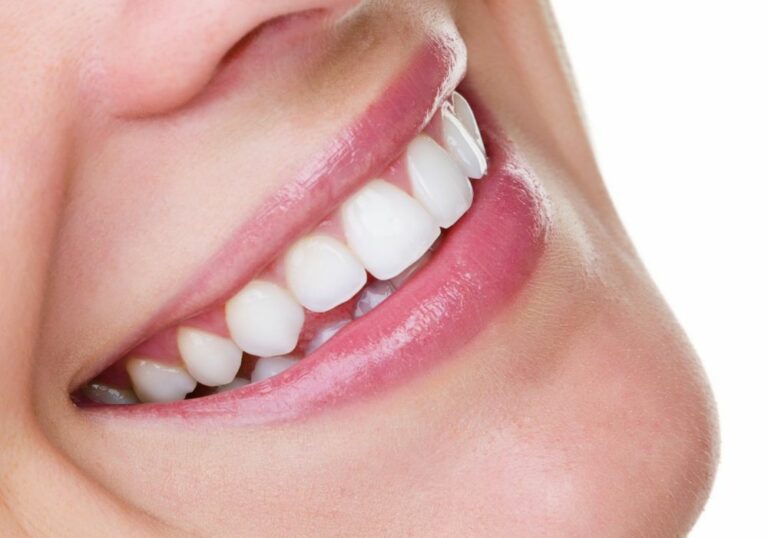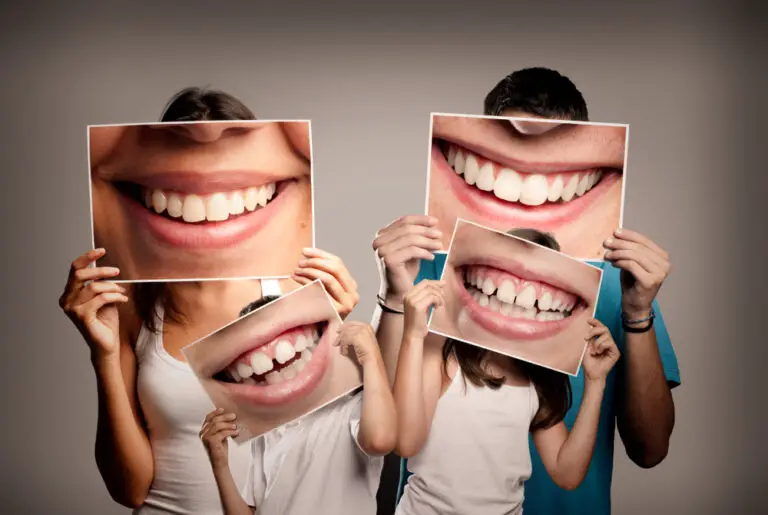If you’re considering getting braces, you may be wondering if you can get them on the same day as a tooth extraction. The answer is not a simple yes or no, as it depends on various factors. However, it is possible to get braces on the same day as a tooth extraction in some cases.
Before deciding to get braces on the same day as a tooth extraction, it’s essential to understand the process and its potential risks. Tooth extraction is a surgical procedure that involves removing a tooth from its socket in the jawbone. The procedure is typically done under local anesthesia, and recovery time can vary from a few days to a few weeks, depending on the individual’s healing process. Braces, on the other hand, are orthodontic devices used to straighten teeth and correct bite issues. The process of getting braces involves attaching brackets to the teeth and connecting them with wires. The process can take a few hours, and it may cause some discomfort and soreness.
Understanding Tooth Extraction
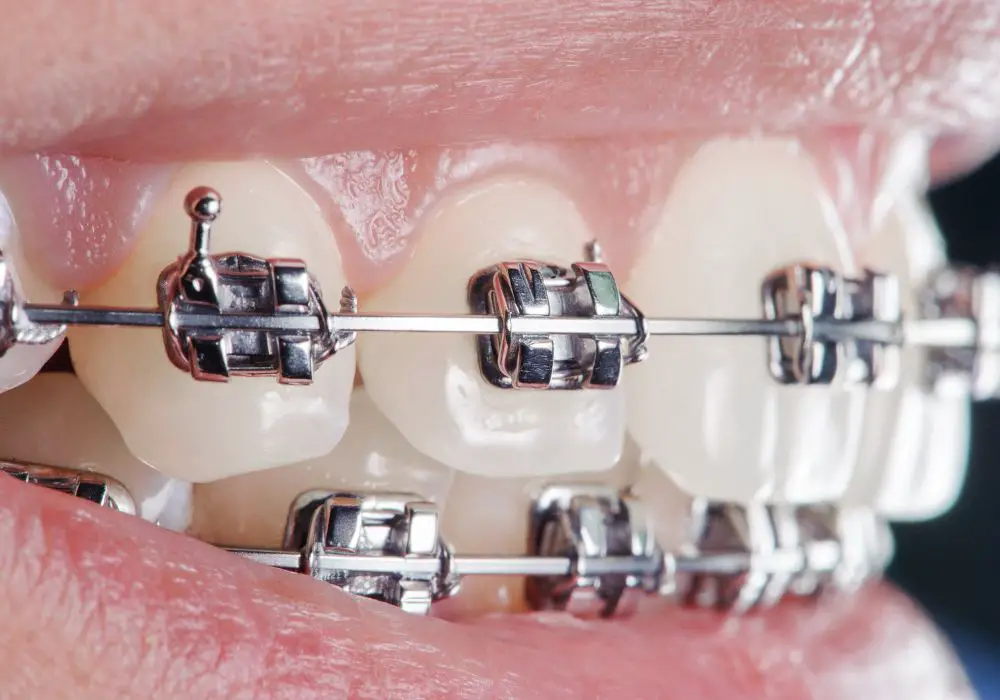
If you’re considering getting braces, you might be wondering if you can get them the same day as a tooth extraction. While it is possible, there are a few things you should know about tooth extraction before you make any decisions.
Reasons for Tooth Extraction
There are several reasons why a tooth might need to be extracted. Some of the most common reasons include:
- Severe decay or damage that cannot be repaired with a filling or crown
- Gum disease that has caused the tooth to become loose
- Overcrowding of teeth in the mouth
- Preparation for orthodontic treatment, such as braces
If your dentist or orthodontist recommends tooth extraction as part of your orthodontic treatment plan, it’s important to understand why it’s necessary and what to expect during the procedure.
Procedure of Tooth Extraction
Tooth extraction is a relatively simple procedure that is typically performed under local anesthesia. During the procedure, the dentist or oral surgeon will use specialized tools to loosen the tooth from its socket and remove it from the mouth.
After the tooth is extracted, you will be given instructions on how to care for the extraction site to promote healing and prevent infection. This may include:
- Applying a cold compress to reduce swelling
- Taking pain medication as prescribed
- Avoiding hard or chewy foods for a few days
- Rinsing your mouth with salt water to promote healing
It’s important to follow these instructions carefully to ensure that the extraction site heals properly and to minimize the risk of complications.
In summary, tooth extraction is a common procedure that may be necessary as part of your orthodontic treatment plan. While it is possible to get braces the same day as a tooth extraction, it’s important to understand the reasons for the extraction and what to expect during the procedure and aftercare. Be sure to discuss your options with your dentist or orthodontist to determine the best course of action for your individual needs.
Basics of Braces
If you’re considering getting braces, it’s important to understand the basics of this common orthodontic treatment. Here are the key things you need to know:
Types of Braces
There are several types of braces available, each with their own advantages and disadvantages. The most common types of braces include:
- Metal braces: These are the traditional style of braces, and are made from metal brackets and wires. They are very effective at straightening teeth, but can be noticeable and uncomfortable.
- Ceramic braces: These are similar to metal braces, but the brackets are made from tooth-colored ceramic material, making them less noticeable. However, they can be more fragile than metal braces.
- Lingual braces: These are similar to metal braces, but the brackets are attached to the back of the teeth instead of the front, making them virtually invisible. However, they can be more difficult to clean and adjust than other types of braces.
- Clear aligners: These are a series of clear, removable trays that gradually shift your teeth into place. They are virtually invisible and can be removed for eating and brushing, but may not be as effective for more complex orthodontic issues.
Your orthodontist can help you determine which type of braces is best for your needs.
Process of Getting Braces
The process of getting braces typically involves several steps:
- Consultation: During your initial consultation, your orthodontist will evaluate your teeth and recommend a treatment plan. They may also take X-rays and impressions of your teeth.
- Preparation: Before getting braces, you may need to have teeth extracted or other dental work done to prepare your mouth for the braces.
- Placement: When it’s time to get your braces, your orthodontist will clean and dry your teeth, then apply the brackets and wires. This process typically takes about 1-2 hours.
- Adjustments: Over the course of your treatment, you will need to visit your orthodontist regularly for adjustments to your braces. This may involve tightening the wires or replacing the rubber bands.
- Removal: When your treatment is complete, your orthodontist will remove your braces and give you a retainer to wear to maintain your new smile.
While getting braces may seem intimidating, it’s a common and effective way to straighten your teeth and improve your oral health. Talk to your orthodontist to learn more about the process and which type of braces is right for you.
Can You Get Braces the Same Day?
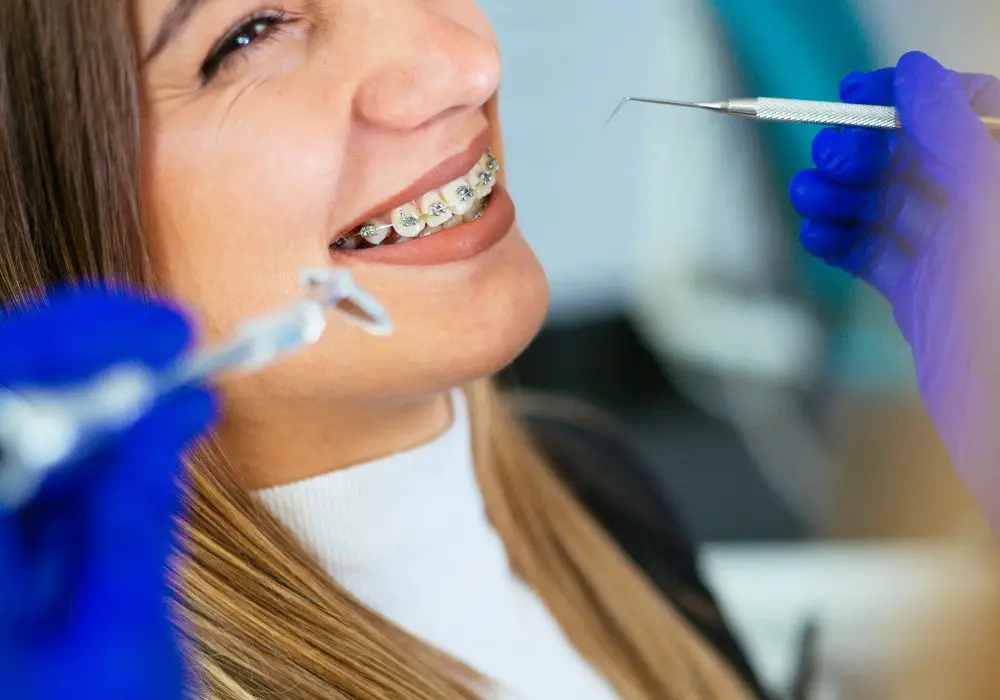
If you’re wondering whether you can get braces on the same day as a tooth extraction, the answer is that it depends on several factors. Here are some things to consider:
Factors Influencing Same Day Braces
- Orthodontist’s preference: Some orthodontists prefer to wait a few days or weeks after a tooth extraction before placing braces. This allows time for the gums and bone to heal properly. However, other orthodontists are comfortable placing braces on the same day as an extraction.
- Type of tooth extraction: If the tooth being extracted is a simple extraction, meaning it has a single root and is easily removed, you may be able to get braces the same day. However, if the tooth is a more complicated extraction, such as a wisdom tooth, you may need to wait a few days or weeks before getting braces.
- Your oral health: If you have any existing oral health issues, such as gum disease or tooth decay, your orthodontist may want to address those issues before placing braces. This could delay the process of getting braces on the same day as a tooth extraction.
- Type of braces: The type of braces you’re getting may also influence whether you can get them on the same day as a tooth extraction. For example, if you’re getting traditional metal braces, they may be easier to place on the same day as an extraction. However, if you’re getting clear aligners, your orthodontist may want to wait a few days or weeks before starting treatment.
In summary, whether you can get braces on the same day as a tooth extraction depends on several factors. Talk to your orthodontist to determine the best course of action for your individual situation.
Effects on Oral Health
Impact of Same Day Braces and Extraction on Oral Health
Getting braces the same day as a tooth extraction can have both positive and negative effects on your oral health. Here are some things to consider:
- Positive Effects
- Straighter teeth: Braces can help align your teeth, improving your bite and overall oral health.
- Reduced risk of gum disease: Crooked teeth can make it difficult to clean your teeth properly, increasing the risk of gum disease. Straighter teeth are easier to clean, reducing this risk.
- Improved speech: Crooked teeth can affect your speech. Straighter teeth can improve your speech by allowing you to form sounds more accurately.
- Negative Effects
- Increased risk of infection: The extraction site is an open wound, making it more susceptible to infection. Braces can make it difficult to clean the area properly.
- Delayed healing: Braces can put pressure on the extraction site, delaying the healing process.
- Discomfort: Braces can cause discomfort, especially in the days following the extraction.
It’s important to discuss the potential risks and benefits of getting braces the same day as a tooth extraction with your dentist or orthodontist. They can help you determine if this is the best course of action for your individual needs and oral health.
Alternatives and Considerations
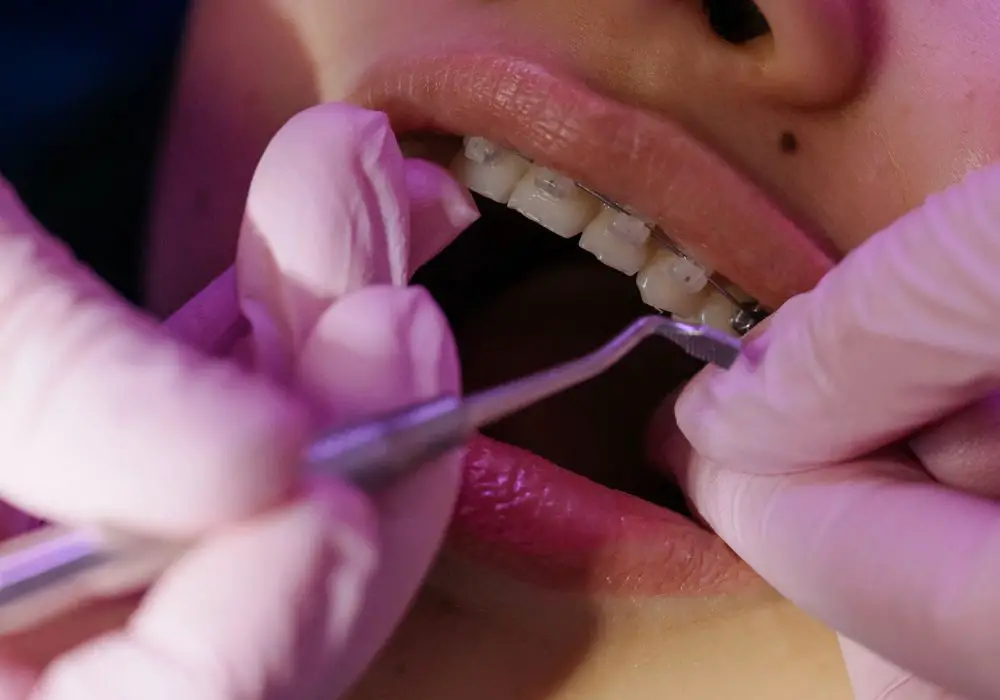
If you need to get braces but are concerned about tooth extraction, there are other orthodontic options to consider. Before making a decision, it is important to understand the pros and cons of each option.
Other Orthodontic Options
One alternative to tooth extraction is teeth slimming. This technique involves slimming down certain teeth to create more space in the jawline. It is typically used when the width of your teeth is causing overcrowding. Teeth slimming is a minimally invasive procedure that can be done quickly and easily.
Another option is removable veneers. These are custom-made shells that cover the front of your teeth. They can be used to correct minor alignment issues and improve the appearance of your smile. Removable veneers are a good option if you want to avoid braces or tooth extraction.
Points to Consider Before Deciding
Before deciding on a treatment option, there are a few points to consider. First, you should talk to your orthodontist about the pros and cons of each option. They can help you determine which treatment is best for your specific needs.
You should also consider the cost of each option. Braces and tooth extraction can be expensive, but there are other options that may be more affordable. Removable veneers, for example, can be a cost-effective alternative to traditional braces.
Finally, you should think about the long-term effects of each option. Braces and tooth extraction can have a significant impact on your oral health, so it is important to consider the potential risks and benefits before making a decision.
In summary, there are several alternatives to tooth extraction for braces, including teeth slimming and removable veneers. Before deciding on a treatment option, it is important to consider the pros and cons of each option and talk to your orthodontist about which treatment is best for your specific needs.
Frequently Asked Questions
How soon after a tooth extraction can I get braces?
It is best to wait until your tooth extraction site has fully healed before getting braces. This usually takes about 7-10 days, but it can vary depending on the individual case. Your orthodontist will be able to give you a more accurate timeline based on your specific situation.
Do I need to get teeth extracted before getting braces?
Not everyone needs to get teeth extracted before getting braces. It depends on the individual case and what your orthodontist recommends. In some cases, teeth need to be removed to make room for the remaining teeth to shift into the correct position. Your orthodontist will be able to evaluate your situation and determine if tooth extraction is necessary.
What is the typical wait time between tooth extraction and braces?
The wait time between tooth extraction and getting braces can vary depending on the individual case. In general, it is best to wait until your extraction site has fully healed before getting braces. This usually takes about 7-10 days, but it can vary depending on the individual case. Your orthodontist will be able to give you a more accurate timeline based on your specific situation.
Can I get braces if I have already had teeth extracted?
Yes, you can still get braces if you have already had teeth extracted. In fact, in some cases, tooth extraction may be necessary before getting braces. Your orthodontist will be able to evaluate your situation and determine if tooth extraction is necessary.
How long does it take for a tooth extraction to heal before getting braces?
It usually takes about 7-10 days for a tooth extraction site to fully heal. However, the healing time can vary depending on the individual case. It is best to wait until your extraction site has fully healed before getting braces. Your orthodontist will be able to give you a more accurate timeline based on your specific situation.
Is it possible to get braces the same day as a tooth extraction?
It is not recommended to get braces the same day as a tooth extraction. It is best to wait until your extraction site has fully healed before getting braces. This usually takes about 7-10 days, but it can vary depending on the individual case. Your orthodontist will be able to give you a more accurate timeline based on your specific situation.



